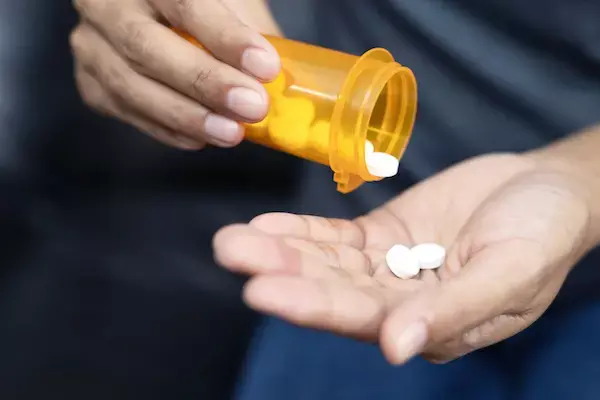- Home
- Medical news & Guidelines
- Anesthesiology
- Cardiology and CTVS
- Critical Care
- Dentistry
- Dermatology
- Diabetes and Endocrinology
- ENT
- Gastroenterology
- Medicine
- Nephrology
- Neurology
- Obstretics-Gynaecology
- Oncology
- Ophthalmology
- Orthopaedics
- Pediatrics-Neonatology
- Psychiatry
- Pulmonology
- Radiology
- Surgery
- Urology
- Laboratory Medicine
- Diet
- Nursing
- Paramedical
- Physiotherapy
- Health news
- Fact Check
- Bone Health Fact Check
- Brain Health Fact Check
- Cancer Related Fact Check
- Child Care Fact Check
- Dental and oral health fact check
- Diabetes and metabolic health fact check
- Diet and Nutrition Fact Check
- Eye and ENT Care Fact Check
- Fitness fact check
- Gut health fact check
- Heart health fact check
- Kidney health fact check
- Medical education fact check
- Men's health fact check
- Respiratory fact check
- Skin and hair care fact check
- Vaccine and Immunization fact check
- Women's health fact check
- AYUSH
- State News
- Andaman and Nicobar Islands
- Andhra Pradesh
- Arunachal Pradesh
- Assam
- Bihar
- Chandigarh
- Chattisgarh
- Dadra and Nagar Haveli
- Daman and Diu
- Delhi
- Goa
- Gujarat
- Haryana
- Himachal Pradesh
- Jammu & Kashmir
- Jharkhand
- Karnataka
- Kerala
- Ladakh
- Lakshadweep
- Madhya Pradesh
- Maharashtra
- Manipur
- Meghalaya
- Mizoram
- Nagaland
- Odisha
- Puducherry
- Punjab
- Rajasthan
- Sikkim
- Tamil Nadu
- Telangana
- Tripura
- Uttar Pradesh
- Uttrakhand
- West Bengal
- Medical Education
- Industry
Protamine use for reversal of effects of heparin in PCI not tied to bleeding risk and stent thrombosis

A recent study published in the International Journal of Cardiology found evidence supporting the safety and efficacy of using protamine to reverse the effects of heparin in percutaneous coronary intervention (PCI) procedures.
Heparin, a commonly used anticoagulant during PCI, has been a standard practice in preventing clotting during the procedure. However, the use of protamine to reverse heparin's effects has been limited due to concerns about stent thrombosis, a potentially dangerous complication.
To evaluate the potential risks and benefits of protamine, the team led by Paul Lee conducted an extensive analysis of relevant studies published in English. The study included data from 11 studies and focused on outcomes such as stent thrombosis, mortality, major bleeding complications, and length of hospitalization.
The results of the analysis were groundbreaking. The use of protamine did not show an increased risk of stent thrombosis or mortality. However, the administration of protamine was associated with a significantly decreased incidence of major bleeding complications. Patients who received protamine also experienced a shorter length of hospitalization, indicating potential benefits in terms of recovery and healthcare costs.
The use of protamine could offer a safe and efficacious option for clinicians, allowing for earlier sheath removal, reducing major bleeding complications, and ultimately improving patient outcomes. The study's findings have significant implications for the field of interventional cardiology. By utilizing protamine in PCI procedures, clinicians may have an opportunity to optimize patient care, potentially reducing complications and improving overall recovery.
While the results are promising, further research and validation are still needed to solidify the findings and establish clear guidelines for the use of protamine in PCI. However, this study opens up new possibilities for improving patient outcomes and advancing the field of cardiac interventions.
Reference:
Lee, P. Y., Bello, J., Ye, C., Varadarajan, S., Hossain, A., Jumkhawala, S., Sharma, A., & Allencherril, J. (2023). Safety of routine protamine in the reversal of heparin in percutaneous coronary intervention: A systematic review and meta-analysis. In International Journal of Cardiology (p. 131168). Elsevier BV. https://doi.org/10.1016/j.ijcard.2023.131168
Neuroscience Masters graduate
Jacinthlyn Sylvia, a Neuroscience Master's graduate from Chennai has worked extensively in deciphering the neurobiology of cognition and motor control in aging. She also has spread-out exposure to Neurosurgery from her Bachelor’s. She is currently involved in active Neuro-Oncology research. She is an upcoming neuroscientist with a fiery passion for writing. Her news cover at Medical Dialogues feature recent discoveries and updates from the healthcare and biomedical research fields. She can be reached at editorial@medicaldialogues.in
Dr Kamal Kant Kohli-MBBS, DTCD- a chest specialist with more than 30 years of practice and a flair for writing clinical articles, Dr Kamal Kant Kohli joined Medical Dialogues as a Chief Editor of Medical News. Besides writing articles, as an editor, he proofreads and verifies all the medical content published on Medical Dialogues including those coming from journals, studies,medical conferences,guidelines etc. Email: drkohli@medicaldialogues.in. Contact no. 011-43720751


